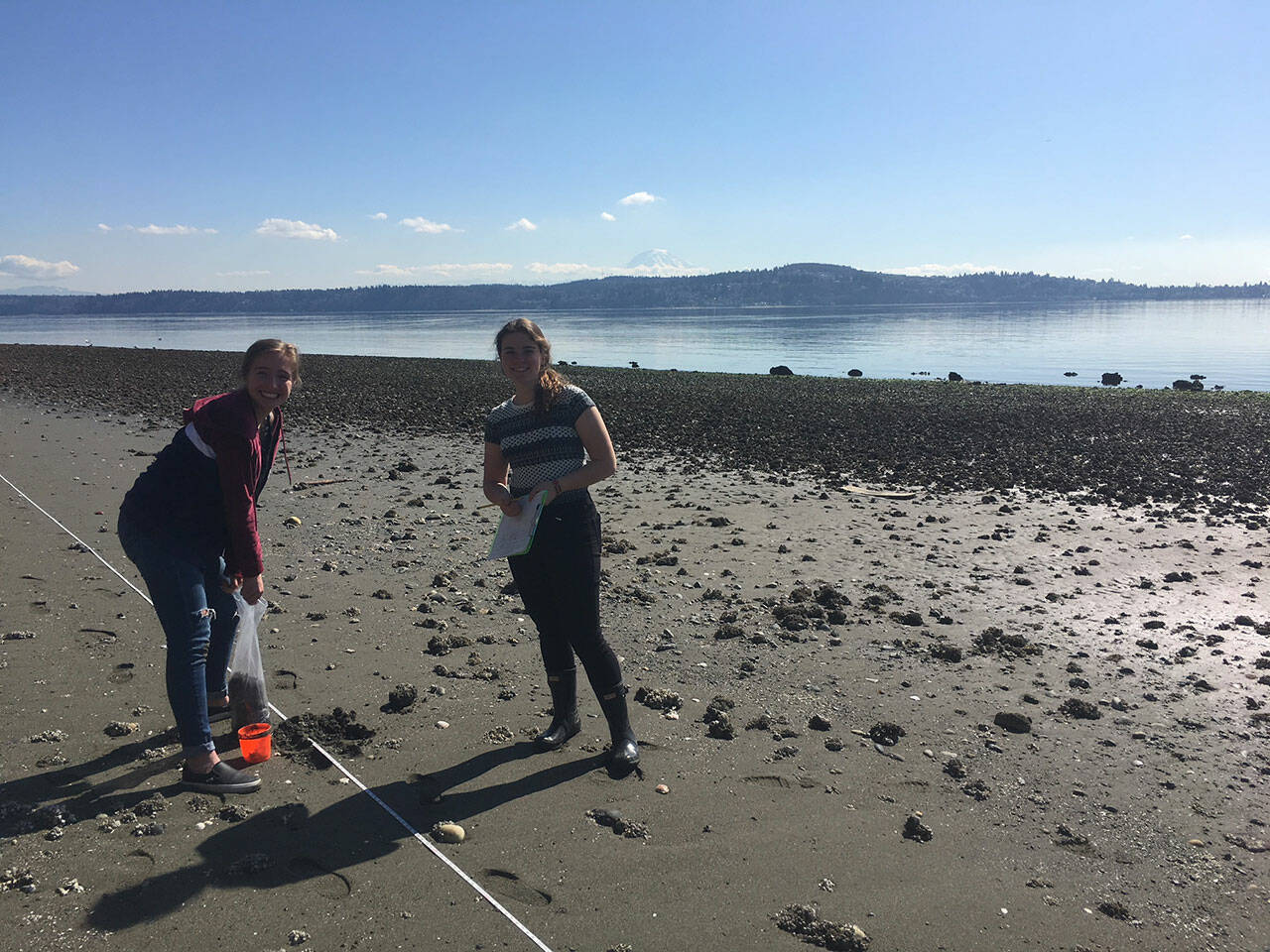Vashon Nature Center (VNC) has received a two-year federal science education grant of $85,000 from the National Oceanic and Atmospheric Administration (NOAA).
The goal of NOAA’s highly competitive Bay Watershed Education Training (B-WET) grant is to create what NOAA calls “meaningful watershed education experiences” (MWEEs) where environmental science concepts are connected to the local watershed environment and students get hands-on, applied, educational experiences.
VNC has also received ongoing support from Vashon Partners in Education (PIE), The Russell Family Foundation, The Rose Foundation, King County, and the Vashon Island Schools Foundation — support that board members of VNC now say have enabled the creation and multi-year development of environmental education programs now recognized by NOAA as exemplary MWEE’s.
The mission of VNC is to create transformative nature experiences through community science, research and education.
“Getting outside reminds us that we are part of a much bigger story,” says VNC board member Ann Edwards. “Vashon’s streams, forests, fields, and nearshore marine environments provide a rich resource enabling authentic educational experiences for Vashon students and our neighbors throughout the Puget Sound.”
Hands-on learning in the outdoors is especially important for captivating and training the next generation of environmental practitioners and scientists.
But, as says, “We are in an age where our relationship to the environment permeates everything we do,” said Bianca Perla, VNC’s director. “Environmental literacy is becoming crucial to our success as a species. No matter what career students decide on — from politician to writer, to artist, to business owner — a hands-on practical understanding of the environment and a deep connection to nature are hugely beneficial.”
The $85,000 BWET grant will fund the continuation of coordinated programs VNC has already established, led by VNC scientists including Perla, Maria Metler and Vale Martinez, that reach deep into Vashon’s elementary, middle and high schools. VNC assists teachers with the 5th-grade salmon program — focusing on salmon food webs, ecology and conservation and looping in the Vashon Artists in Schools project with a focus on salmon conservation.
“The 5th-grade salmon project is a cornerstone project for the Chautauqua school experience,” said Chautauqua Elementary School Principal Rebecca Goertzel. “Our fifth graders learn about the amazing life cycle of salmon that plays out in our local creeks and they learn to take responsibility for their local watershed.”
VNC’s 6th-grade Stream Invertebrate program enables students to help monitor the biological integrity of local watersheds by counting stream bugs and sharing their results with the Vashon Groundwater Protection committee. Previous student research initiated an effort to install rain gardens at Vashon IGA that, when constructed, will serve to slow and clean rainfall before it enters Shinglemill creek.
The 9th-grade hands-on science program requires students to participate in a field-based, small team research project on topics pertinent to the health of the Puget Sound watershed — including seastar wasting disease, forage fish spawning habitat, and the ecological impacts of removing shoreline armoring. Data are shared with regional partners, including the University of Washington, King County, and the Washington State Aquatic reserve program.
Funding provided by the B-WET grant will now make it possible for VNC to expand their engagement, including holding a four-day, regional teacher workshop on how to create MWEEs.
Additionally, VNC will help the schools further develop courses at VISD on marine biology and AP Environmental Sciences, and provide three paid internships that will prioritize high school students traditionally underrepresented in the environmental sciences.
Finally, the B-WET grant will enable VNC to work with teachers and administrators to align programs, so they build coherently across grade levels, enabling students to grow their skills of observation, critical thinking, and scientific inquiry while deepening their knowledge and sense of connection and wonder about the place where they live.


